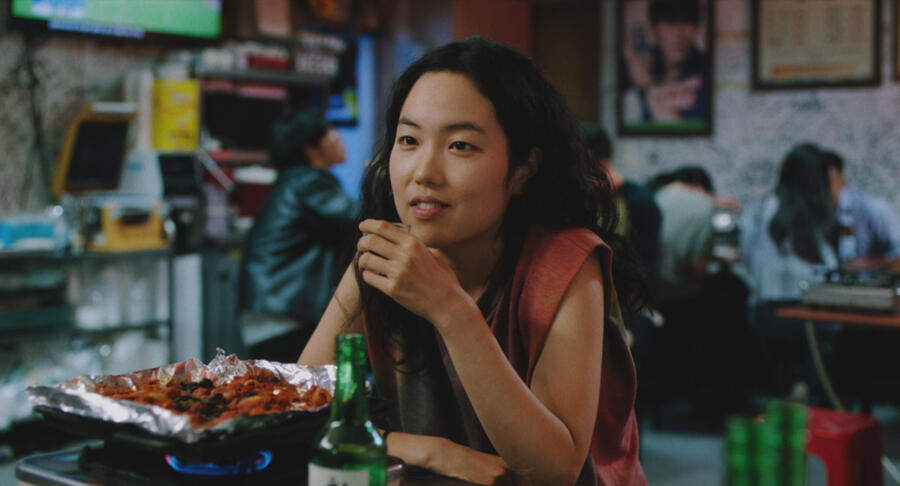A review of Davy Chou’s Return to Seoul (2022)

A few of us from AAM went along to the screening, with director’s Q&A, of Return to Seoul at the British Film Insitute earlier this month. Now that I’ve had a chance to reflect, here are a few thoughts I’ve had as an intercountry adult adoptee.
French Cambodian director Davy Chou was inspired to make the film following a journey he made with his friend Laure Badulfe, a Korean adoptee, on her return to South Korea to search for her birth parents.
It is a dark and atmospheric film, with many silent moments where the audience is drawn into the world of Freddie (the main character, who is based on Laure). Her face is emotionless as she sits amongst Korean people but clearly feels displaced. She is angry, her behaviour erratic, but underneath is a longing to find out who she is and where she came from. She returns to the adoption agency.
The film spans Freddie’s continued return to Seoul over the span of several years. She meets her birth father. She is both overwhelmed and coldly distant from the man who tries to welcome her but their reunion raises his feelings of guilt over her abandonment. He becomes distraught at her indifference towards him and turns to alcohol to deal with his own traumatic memories of her birth and relinquishment. He wants a chance to rectify his past mistakes but Freddie’s self-protection is her only means of coping. Her inability to communicate in her mother tongue along with cultural alienation is a visceral reminder of all that she has lost.
Freddie is self-destructive, her behaviour a way of numbing the pain. A role that many of us adoptees know so well. She uses relationships as a way to feel and then discards these men with ease. It’s just another form of self protection: rejecting others before they can reject you. Many adoptees are uncomfortable with vulnerability. For our whole lives we have been forced to protect ourselves from those who fail to acknowledge our feelings.
Freddie looks Korean because she is. Her appearance is accepted and she moves around Korea with ease but all intercountry adoptees are displaced mentally and culturally from our homelands. Raised as white western individuals it is extremely hard for us to connect with our foreign roots.
Freddie’s inability to communicate her true feelings echoes that of us all. We are silenced, unable to articulate the trauma that lives in our bodies. We as intercountry adoptees are made to feel grateful for being saved from a culture that is deemed inferior to western society. However, those same western societies see us as different. This is the paradox of being an intercountry adoptee. We don’t belong to either society and never will.
Towards the end of the film Freddie is finally able to meet her birth mother and we witness the raw emotions she has buried and guarded deep within her for all those years. It is both touching and heartbreaking all at once, as she is openly vulnerable for the first time. Freddie has evolved through her pain and our parting shot is a young woman who by the end of her journey is still very much alone.
At the Q&A I was surprised to hear a question from a male adoptee about Freddie being an unsympathetic character. While I can understand the wish to see Korean adoptees portrayed in a positive light, I disagree with the characterisation of her as unsympathetic and believe it also misses the point. Freddie’s behaviour is a response to the circumstances she finds herself in, her emotional landscape brought to life with devastating accuracy by visual artist and first-time actor Park Ji-Min. And adult women adoptees, particularly those from Eastern cultures, are objectified in the West. While in our homelands our experiences can be very different from those of men, because women are viewed and treated as having less value.
Return to Seoul is showing at cinemas nationwide and will be released online in July.